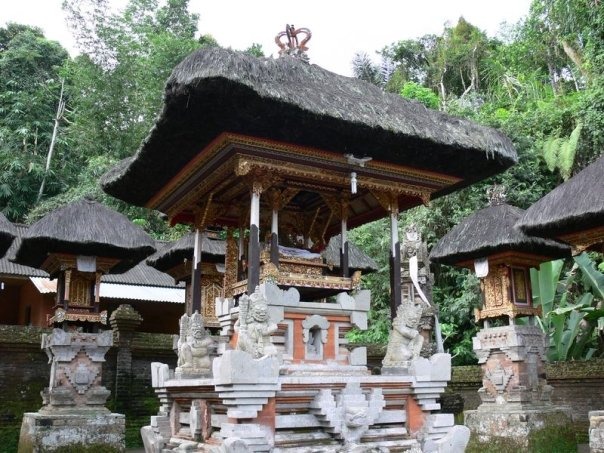Ah, Kuta! Known for its pristine beaches, vibrant nightlife, and, of course, the lush underwater world nearby. If you’ve ever mused about taking up diving, Kuta is a fantastic place to do it. The warm waters of Bali are home to vibrant reefs and diverse marine life, making the diving experience truly unforgettable. Let’s dive into the world of Kuta diving schools and certifications, and I promise to share some personal stories that might just inspire you to take the plunge!
The Kuta Diving Scene
Kuta might evoke thoughts of sunbathers on the beach or surfers catching that perfect wave, but underneath its waves lies a different kind of excitement. As someone who once found themselves in Kuta, caught between lounging on the beach and exploring the depths of the ocean, I can assure you—the latter is a choice you won’t regret.
When I first considered diving, I felt apprehensive. What if I didn’t like it? What if I wasn’t cut out for it? But curiosity got the better of me, and after chatting with friends who were divers, I decided to give it a shot—after all, Kuta is known for its friendly dive schools that cater to all levels.
Choosing the Right Dive School
With numerous diving schools available in Kuta, it can feel overwhelming to choose one. From beginner courses to advanced certifications, these schools offer various options. Here’s some practical advice:
– Do Your Research: Check online reviews, and social media pages. Visit diving forums to gauge experiences from other divers.
– Ask Local Divers: Sometimes the best insights come from other divers. I still remember chatting with a group over a Bintang beer at a local bar who shared their diving experiences and recommendations.
Top Dive Schools in Kuta
1. Turtle Island Dive School: Known for its personalized approach, this school offers small group sizes which make the learning experience feel intimate and focused.
2. Nusa Dua Diving Academy: A bit of a drive from Kuta, but they are praised for their comprehensive safety measures and knowledgeable instructors.
3. Bali Diving Academy: This is an established name in the region, offering a range of certifications from PADI to SSI.
Each school has its own vibe and specialties, so visit them if you can. A friendly chat with the instructors can give you a sense of their teaching style.
Certifications Available
Once you’ve decided on a school, it’s time to think about what kind of certification you’d like to achieve. Here’s a breakdown of some popular choices:
– PADI Open Water Diver: The most recognized entry-level certification in the world. It took me four days to complete my course, and every moment was thrilling. Learning to control buoyancy and communicate underwater opened a whole new world for me.
– Advanced Open Water Diver: Once you have your Open Water certification, consider advancing to this level. It was during my Advanced course that I experienced night diving for the first time—floating in the dark, illuminated by glowing plankton, was one of the most magical experiences I’ve ever had.
– Rescue Diver and Specialties: If you’re looking to hone specific skills (like underwater photography or wreck diving), there are many specialty courses available. Just thinking about it makes me reminisce about that time I took a photography course—getting the perfect shot of a clownfish among the anemones was my proudest moment.
What to Expect
Expect to learn, laugh, and maybe even feel a little nervous your first day. That was certainly the case for me! The initial classroom sessions were filled with fascinating information about marine life and dive physics, and let me tell you, it’s a lot easier to remember if you can envision yourself experiencing it.
After the theories, we headed to the pool for practice. I distinctly remember my first attempt at clearing my mask underwater. My instructor was patient, and after a couple of tries, I managed to do it without panicking. The encouragement from my fellow students turned that nervousness into camaraderie.
Practical Tips
– Stay Hydrated: Diving can be dehydrating, especially in warm weather. Keep a water bottle close.
– Practice Equalizing: If you’re a newbie, learning to equalize your ears is crucial. Take it slow, and don’t rush the descent.
– Have Fun: The most important part of diving—enjoy the experience! I’ll never forget my first dive at the Liberty Shipwreck in Tulamben. As we descended, the breathtaking view of a sunken ship surrounded by vibrant marine life unfolded before us. The thrill still sends chills down my spine!
Closing Thoughts
Diving in Kuta is more than just a hobby; it’s a journey that can change your perspective on the ocean and its wonders. Take your time to find the right diving school, embrace the learning process, and before you know it, you’ll be plunging into the blue with a broader understanding and appreciation for the underwater world.As you embark on this journey, I hope my experiences and insights inspire you to take that leap. Whether you’re a complete beginner or looking to advance, Kuta diving schools offer a vibrant community that welcomes you with open arms. Happy diving!






